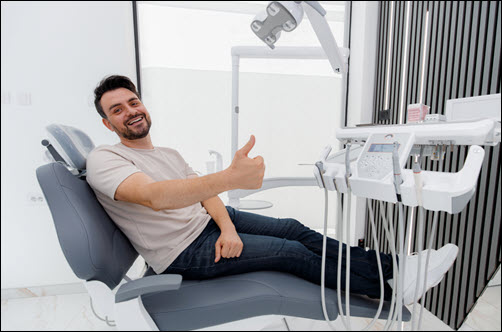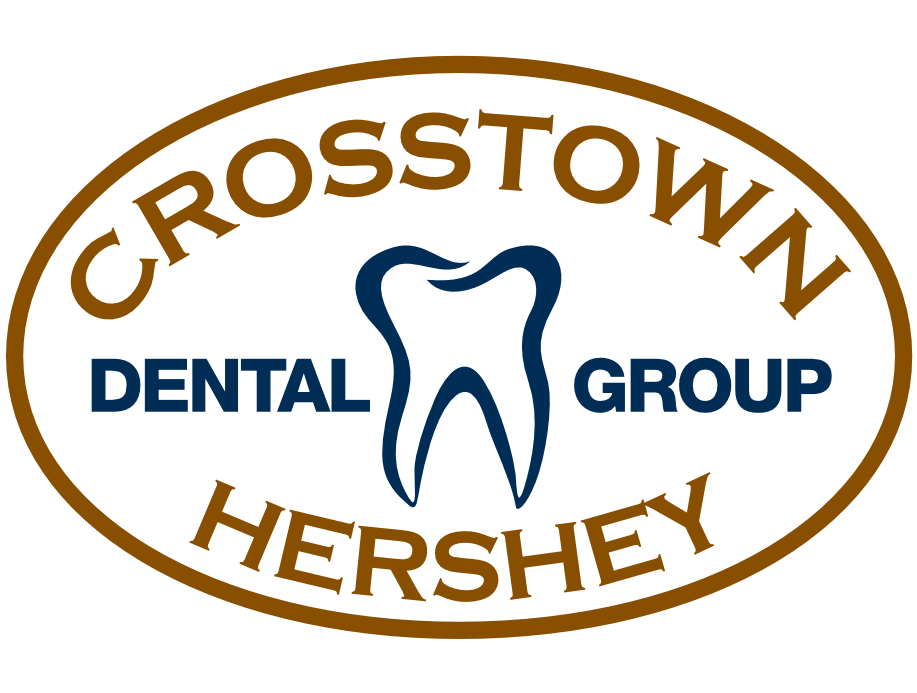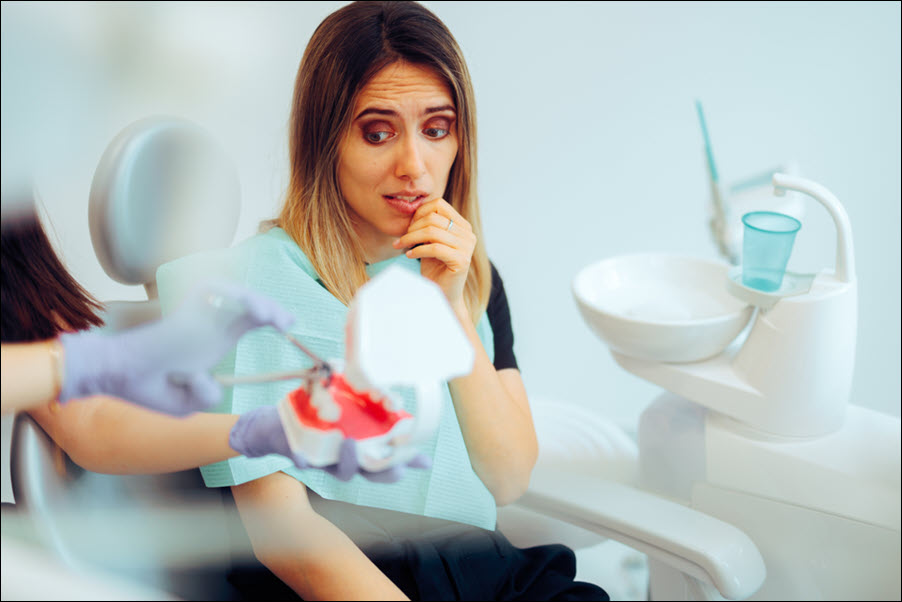Reduce and Manage Dental Anxiety
Dental anxiety prevents many people from seeking regular dental care. Fear of pain, needles, or the dental chair increases stress before appointments. Avoiding dental care leads to cavities, gum disease, and other oral health problems. Managing dental anxiety improves comfort and increases the chances of positive dental experiences. Relaxation techniques, communication with the dentist, and proper preparation reduce stress and fear. Understanding dental procedures also helps reduce uncertainty and increase confidence. Creating a calm, supportive environment improves trust and comfort during dental visits. Let’s explore positive ways to reduce dental anxiety and make dental care easier.
Communicate Openly with Your Dentist
Talking to your dentist about your fears reduces anxiety. Dentists understand dental anxiety and adjust their approach to improve comfort. Before the appointment, discuss any specific fears or past negative experiences. Ask your dentist to explain each step of the procedure to reduce uncertainty. Establish a hand signal to pause treatment if you feel uncomfortable. Dentists may offer breaks during longer procedures to reduce stress. Open communication helps build trust and reduces feelings of helplessness. Dentists can adjust the treatment pace to match your comfort level. Better communication creates a more relaxed and positive dental experience. Feeling heard improves overall confidence and comfort.
Use Relaxation Techniques Before and During the Visit
 Relaxation techniques reduce physical and mental tension before and during dental visits. Deep breathing calms the nervous system and reduces heart rate. Breathe in slowly for four seconds, hold for four seconds, and exhale for four seconds. Listening to calming music or guided meditation reduces mental stress. Progressive muscle relaxation (tensing and releasing muscle groups) reduces physical tension. Closing your eyes and visualizing a positive outcome lowers fear and discomfort. Focusing on slow, even breaths reduces muscle stiffness and jaw clenching. Relaxed muscles improve overall comfort during treatment. Practicing relaxation techniques before the visit increases confidence and reduces anxiety.
Relaxation techniques reduce physical and mental tension before and during dental visits. Deep breathing calms the nervous system and reduces heart rate. Breathe in slowly for four seconds, hold for four seconds, and exhale for four seconds. Listening to calming music or guided meditation reduces mental stress. Progressive muscle relaxation (tensing and releasing muscle groups) reduces physical tension. Closing your eyes and visualizing a positive outcome lowers fear and discomfort. Focusing on slow, even breaths reduces muscle stiffness and jaw clenching. Relaxed muscles improve overall comfort during treatment. Practicing relaxation techniques before the visit increases confidence and reduces anxiety.
Try Sedation Options for Added Comfort
Sedation dentistry helps reduce anxiety and discomfort during dental procedures. Nitrous oxide (laughing gas) creates a relaxed and calm feeling without loss of consciousness. Oral sedatives, taken before the appointment, reduce anxiety and improve comfort. IV sedation allows deeper relaxation for complex procedures. Dentists monitor breathing and heart rate during sedation for safety. Sedation reduces pain sensitivity and increases comfort during longer treatments. Discuss sedation options with your dentist based on your comfort level and procedure type. Light sedation allows you to remain awake and responsive during treatment. Sedation dentistry creates a more positive and stress-free dental experience.
Choose a Calming and Comfortable Dental Office
A calming dental environment reduces anxiety and increases comfort. Choose a dental office with soft lighting, relaxing music, and comfortable seating. Warm blankets and noise-canceling headphones improve relaxation during treatment. Essential oils, like lavender or peppermint, create a soothing atmosphere. Gentle, reassuring staff reduce tension and improve trust. Request a longer appointment time to avoid feeling rushed or pressured. Early morning or late afternoon appointments reduce wait times and stress. Familiar, calming surroundings increase overall comfort and reduce fear. A supportive dental environment creates a more relaxed and positive experience. Feeling comfortable reduces future anxiety and improves overall trust.
Focus on Positive Dental Outcomes
Focusing on the benefits of dental care reduces anxiety and increases motivation. Clean teeth and healthy gums improve breath freshness and smile confidence. Better oral health reduces the risk of cavities, gum disease, and tooth loss. Improved bite strength increases chewing comfort and overall dental function. Positive dental care outcomes increase self-esteem and overall health. Creating a bright, healthy smile increases social and personal confidence. Celebrating small victories, like completing a cleaning without stress, builds confidence. Rewarding yourself after a positive dental visit reinforces good habits. Focusing on positive results increases motivation for future visits. Positive thinking reduces dental anxiety over time.
Build a Routine to Reduce Anxiety
Creating a consistent dental care routine reduces uncertainty and builds confidence. Schedule dental visits every six months to maintain oral health and reduce future problems. Brushing and flossing daily reduce plaque and improve gum health. Familiarity with the dental office and staff increases comfort over time. Knowing what to expect reduces uncertainty and builds trust. Regular cleanings prevent the need for complex and painful procedures. Consistency strengthens positive associations with dental care. Developing a dental care routine increases confidence and reduces long-term stress. A consistent approach improves overall dental health and reduces treatment anxiety.
Dental anxiety prevents many people from seeking proper care, but positive strategies reduce stress and improve comfort. Open communication with your dentist builds trust and reduces fear. Relaxation techniques and sedation options improve comfort and increase confidence. Creating a calming dental environment reduces stress and increases overall trust. Focusing on positive dental outcomes strengthens motivation and improves self-esteem. Building a consistent dental routine increases comfort and reduces long-term anxiety. Positive dental experiences improve oral health and overall confidence. Managing dental anxiety ensures stronger teeth, healthier gums, and a more comfortable smile. Investing in dental comfort creates a healthier and more confident you.

